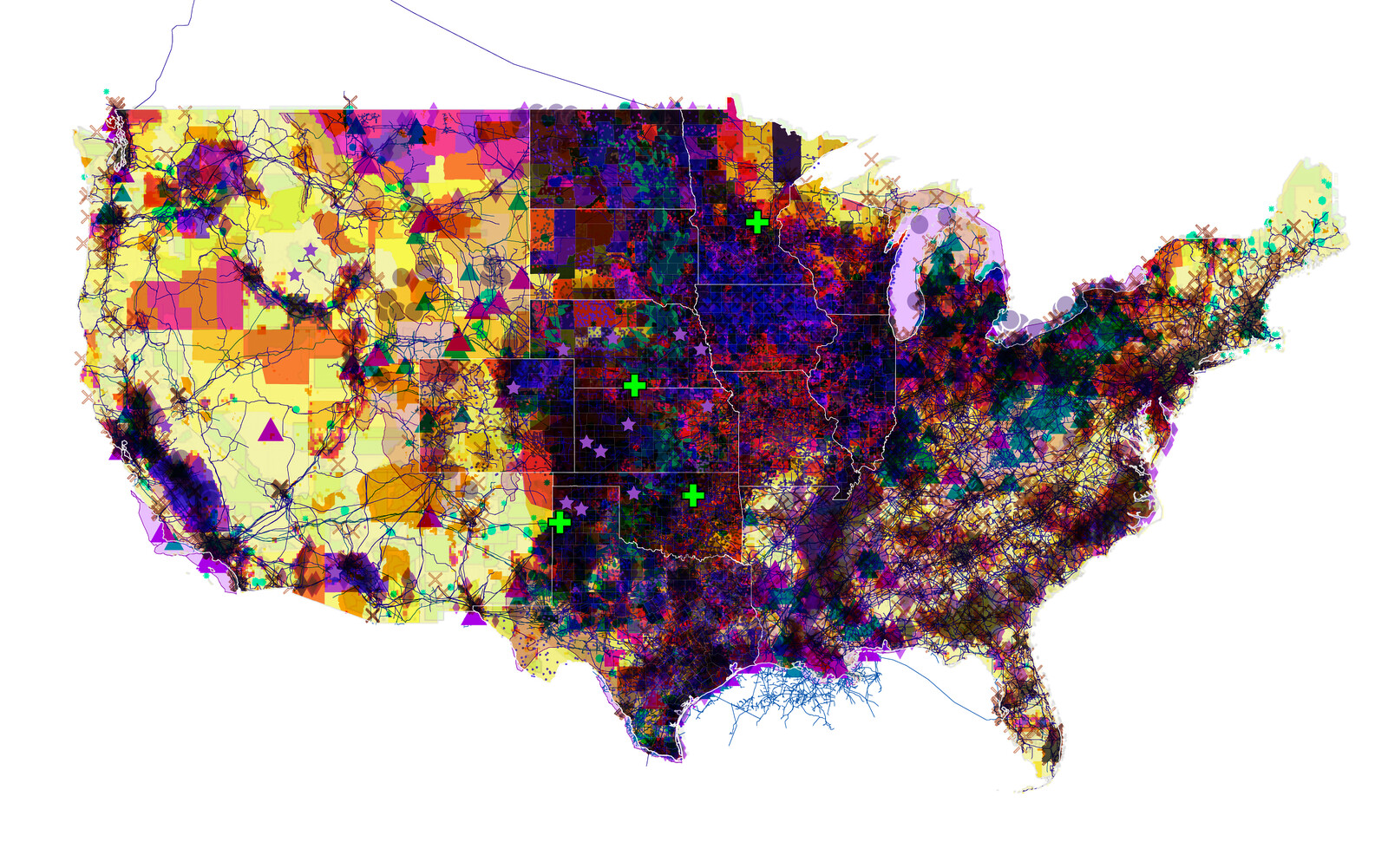June 6, 2023, 7pm
e-flux Architecure presents “Trust Land,” a lecture by Keller Easterling at e-flux on Tuesday, June 6 at 7pm.
In the wake of civil rights struggles, a rural area in Southwest Georgia became a global stage for rehearsing some of the world’s most provocative experiments with community and land tenure. An interracial intentional community, a Nation of Islam farm, the first community land trust, and a wave of cooperative experiments moving through the South in the late 1960s and 1970s found fertile ground around Albany, Georgia—a town that W. E. B. Du Bois called the “heart of the Black Belt.” But, reflecting solidarity between the civil rights, Pan-African, Nonaligned, and Tricontinental movements, associations with prominent international activists also linked this area in the US South to decolonizing efforts in the Global South just prior to a neoliberal turn. Within these networks, victims of White supremacy—best able to imagine its counter-logics within both local and international contexts—modeled approaches to survival that are now broadly relevant to today’s social and climate justice work. The story offers spatial tools and surprising histories to ground and energize a fresh wave of activism that looks to collective forms of urban and rural landholding to address racism, whiteness, inequality, reparations, and environment.
“Trust Land” is presented as part of e-flux Architecture Lectures, a monthly series inviting researchers and practitioners to discuss timely issues in contemporary architecture, theory, culture, and technology.
Keller Easterling is a writer, designer, and the Enid Storm Dwyer Professor of Architecture at Yale. Her books include Medium Design (Verso 2021), Extrastatecraft: The Power of Infrastructure Space (Verso, 2014), Subtraction (Sternberg, 2014), Enduring Innocence: Global Architecture and its Political Masquerades (MIT, 2005), and Organization Space: Landscapes, Highways and Houses in America (MIT, 1999). Easterling also co-authored (with Richard Prelinger) Call it Home, a laserdisc/DVD history of US suburbia from 1934-1960. Easterling lectures, publishes, and exhibits internationally. Her work appeared in the 2014 and 2018 Venice Biennales. She was a 2019 United States Artist in Architecture and Design.
For more information, contact program [at] e-flux.com.
Accessibility
–Two flights of stairs lead up to the building’s front entrance at 172 Classon Avenue.
–For elevator access, please RSVP to program [at] e-flux.com. The building has a freight elevator which leads into the e-flux office space. Entrance to the elevator is nearest to 180 Classon Ave (a garage door). We have a ramp for the steps within the space.
–e-flux has an ADA-compliant bathroom. There are no steps between the event space and this bathroom.
Image: Consider the White-dominated middle of the United States—Texas, Oklahoma, Kansas, Nebraska, South Dakota, North Dakota, Iowa, Minnesota. In this region, the nation’s strongest winds are underutilized for sustainable power, but, coupled with drought, they threaten another Dust Bowl. Politically red states vote against big government even as they receive massive subsidies that outspend most government programs. Stretching from the panhandles of Texas and Oklahoma to urban Minneapolis, where George Floyd was murdered, a sectional stack of data layers might map aquifer depletion, trade wars, crop monocultures, cattle ranches, feed lots, conservation areas, COVID cases, wind farms, earthquakes, fracking accidents, abuses against tribal peoples and lands, pipelines, bloated police budgets, food deserts, and farm subsidies—all in a tangle of cross purposes with ramifying global consequences.


